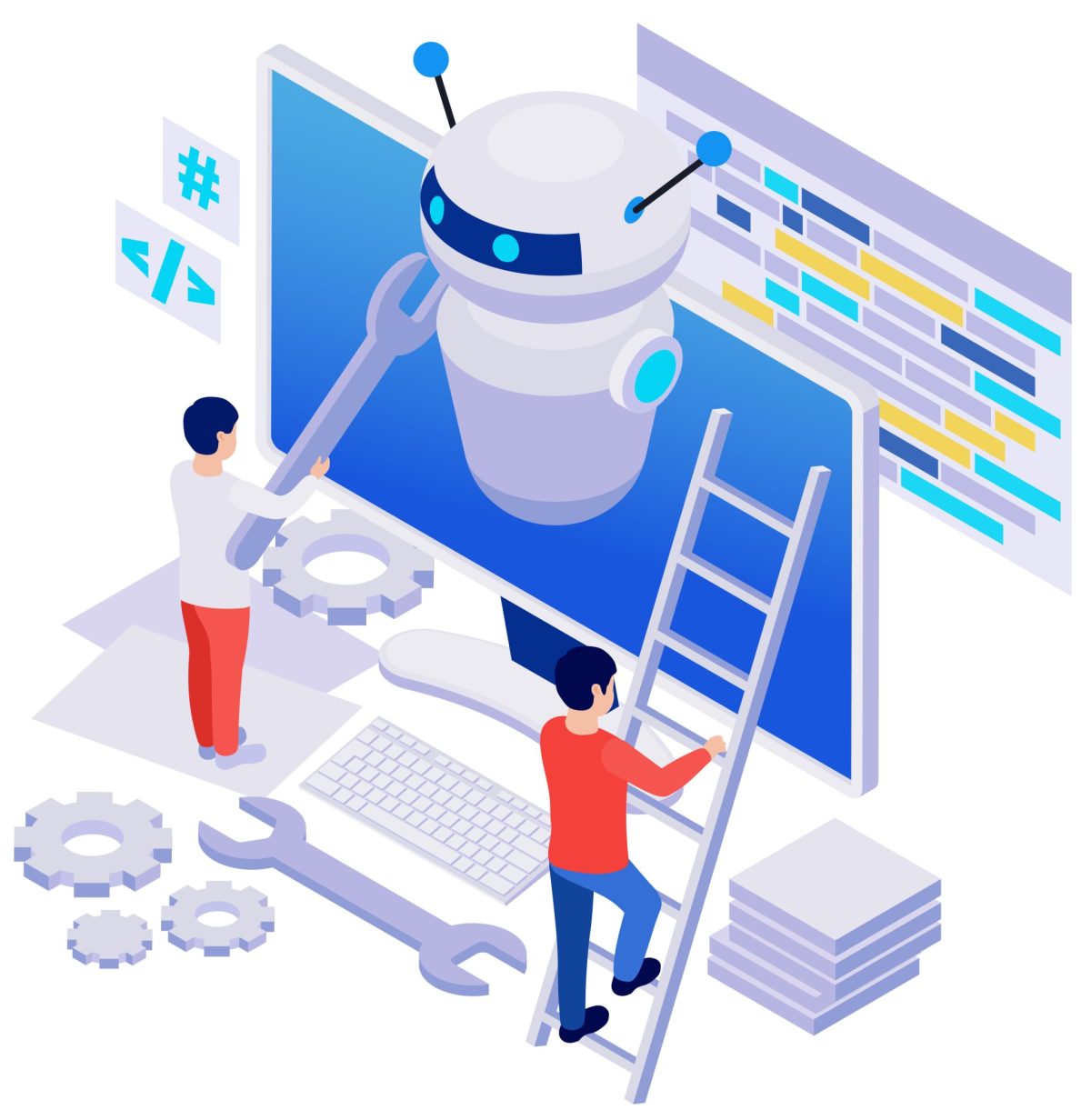As we enter 2026, the digital landscape is transforming faster than ever before. Businesses worldwide are realising that traditional systems are no longer enough to stay competitive. The integration of AI in Digital Transformation has become essential, reshaping how organisations operate, make decisions, and deliver customer experiences. Artificial Intelligence is now the driving engine behind smarter business models, data-driven insights, and innovative strategies.
In this blog, we’ll explore what AI in Digital Transformation truly means, its growing impact in 2026, the challenges businesses face without it, and how Stratpilot empowers companies to adopt Artificial Intelligence effectively in their journey.
What is AI in Digital Transformation?
AI in Digital Transformation refers to the strategic application of artificial intelligence technologies, such as machine learning, natural language processing, and predictive analytics, to enhance processes and improve overall business performance.
Unlike traditional automation, AI introduces intelligence, adaptability, and continuous learning into business ecosystems. It enables organisations to analyse complex data, predict outcomes, optimise decision-making, and innovate at scale. Companies leveraging AI in Digital Transformation experience greater efficiency, agility, and customer satisfaction, making it an indispensable element of growth in 2026.
How AI is Shaping Digital Transformation in 2026
1. Data-Driven Decision-Making
AI empowers businesses to make precise, data-backed decisions by analysing massive amounts of structured and unstructured data. It identifies trends, forecasts outcomes, and provides recommendations that enable smarter, faster, and more strategic decision-making across departments.
2. Enhanced Customer Personalisation
Customer expectations have evolved, and AI enables businesses to deliver hyper-personalised experiences based on behaviour, preferences, and interactions. From Artificial Intelligence-driven chatbots to recommendation systems, AI in Digital Transformation ensures every customer engagement feels tailored and meaningful.
3. Streamlined Operational Efficiency
AI optimises operations by identifying inefficiencies and improving resource allocation. From intelligent document processing to predictive maintenance, it ensures smoother workflows, higher productivity, and cost savings while maintaining quality and accuracy.
4. Predictive Insights for Business Growth
Predictive analytics enables organisations to anticipate market changes, consumer behaviour, and potential disruptions. In 2026, businesses using AI-driven forecasting can stay ahead of competitors, make informed decisions, and proactively plan.
5. Strengthening Digital Security
Cybersecurity remains a top concern in the digital era. AI-driven systems detect anomalies, prevent breaches, and continuously evolve to counter new threats. With AI, organisations enhance their data protection and maintain trust in their digital ecosystems.
6. Empowering Workforce Productivity
AI supports employees by handling repetitive tasks, providing real-time insights, and enhancing decision support. It transforms workflows, enabling teams to focus on strategic objectives, creativity, and innovation instead of routine tasks.
Challenges Businesses Face Without AI-Driven Digital Transformation in 2026
Organizations that fail to adopt AI in Digital Transformation risk being left behind. Without AI, businesses rely on manual processes that slow decision-making, increase costs, and reduce accuracy. Data remains underutilized, leading to missed opportunities and poor strategic alignment.
Additionally, customer expectations in 2026 demand instant, personalised, and seamless experiences, something traditional systems struggle to deliver. Companies that resist AI integration also face higher cybersecurity risks, as manual systems cannot detect or respond to evolving digital threats efficiently.
Ultimately, avoiding AI adoption limits innovation and competitiveness, making it harder for businesses to thrive in a data-driven economy.
How Stratpilot Empowers Your Digital Transformation
Stratpilot is designed to make AI in Digital Transformation simple, practical, and results-driven. It acts as an intelligent productivity companion, helping teams enhance efficiency, organisation, and collaboration without technical complexity.
With Stratpilot, businesses can streamline their digital workflows using AI-powered insights, structured templates, and smart recommendations. Whether it’s managing projects, planning strategies, or analyzing data, Stratpilot ensures every task aligns with your digital goals.
Its AI-driven approach allows organizations to move faster, work smarter, and embrace transformation confidently. Stratpilot empowers teams to harness the full potential of AI, bringing intelligence and structure to every digital process.
Request a Demo for Stratpilot Today
Ready to accelerate your digital journey? Request a demo for Stratpilot today and see how AI-driven intelligence can transform your workflows, improve efficiency, and guide your organization toward successful digital transformation in 2026. Stratpilot helps you move from traditional systems to smart, adaptive, and future-ready operations.
Frequently Asked Questions (FAQs)
Q1: How does AI enhance digital transformation initiatives in 2026?
AI provides real-time insights, predictive analytics, and intelligent process management that enable businesses to adapt quickly to changing market conditions and customer needs.
Q2: Can small businesses benefit from Artificial intelligence in Digital Transformation?
Yes. AI is no longer limited to large corporations. With scalable tools like Stratpilot, small and medium-sized businesses can easily adopt AI to streamline operations and improve decision-making.
Q3: What are some common challenges in implementing AI for digital transformation?
Challenges include data integration, lack of technical expertise, and resistance to change. However, modern AI platforms simplify adoption with intuitive interfaces and guided workflows.
Q4: How does AI improve customer engagement during digital transformation?
AI enables businesses to analyse customer behavior and deliver personalized experiences across digital channels, resulting in higher engagement and satisfaction.
Q5: Why is AI becoming a critical part of digital transformation strategies?
AI empowers organizations to turn data into actionable insights, automate complex tasks, and innovate rapidly. It’s the cornerstone of digital transformation success in 2026 and beyond.





